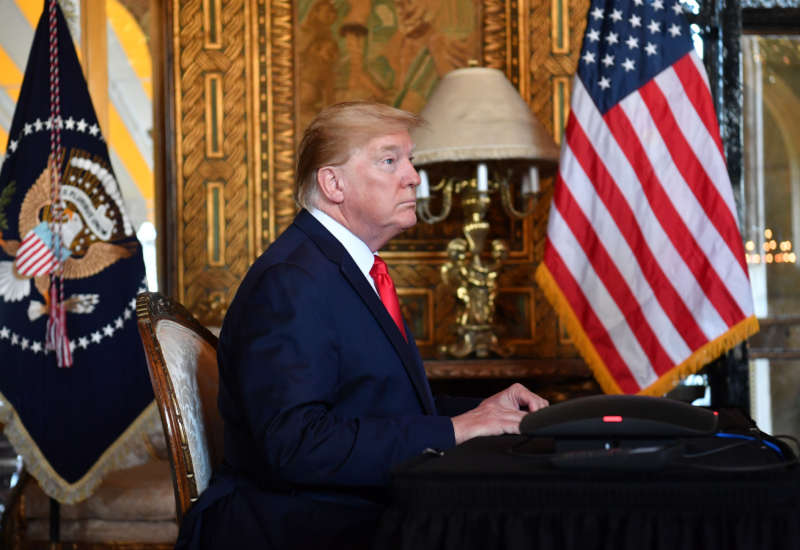A number of the documents that were recently retrieved by the National Archives from former President Donald Trump’s Mar-a-Lago estate were clearly marked as classified – and some were also labeled “top secret,” according to new reporting from The Washington Post.
Two sources with knowledge of the documents that were retrieved confirmed reports from earlier this week that some of the documents were classified. The discovery that Trump was keeping “top secret” documents on his property in Palm Beach, Florida, long after leaving the White House, has prompted several lawmakers to call for a formal inquiry.
Classified documents are typically stored in safe and secure locations. A “top secret” classification applies to documents that can only be viewed by individuals with specific clearance credentials. Should unauthorized disclosure of these documents take place, it “could be expected to cause exceptionally grave damage to the national security,” according to the National Archives’s Information Security Oversight Office.
Trump has downplayed reports that he transferred sensitive documents to his residence after leaving office, claiming in a statement on his website that the retrieval of the documents was routine and viewed as “no big deal.” But former federal prosecutor Brandon Van Grack told The Washington Post that Trump’s actions would, at the very least, require examination.
“The FBI would want and need to review the information and conduct an investigation to determine what occurred and whether any sources and methods were compromised,” Van Grack said.
Several lawmakers in Washington expressed anger over the revelations and said that the transfer of classified documents should be investigated.
“The House should immediately investigate a possible Trump theft of top secret documents,” Rep. Eric Swalwell (D-California) said on Twitter.
Rep. Ted Lieu (D-California) also condemned Trump’s actions.
“The former President of the United States is a national security liability,” Lieu said. “Beyond the pale that he removed Top Secret documents and placed them in an unauthorized location.”
The news confirming that Trump improperly transferred classified and “top secret” information comes as the former president faces renewed scrutiny for his handling of presidential documents during his time in office. The National Archives recently forwarded documents to the House select committee investigating the January 6 Capitol attack; the papers had been ripped apart by Trump and had to be taped back together in order to be read and used as evidence.
Trump’s destruction of the documents is a clear violation of the Presidential Records Act. His transferring of classified documents from the White House to Mar-a-Lago may also constitute a violation of the law.
Penalties for violating the Presidential Records Act include huge fines and, in some cases, several years of imprisonment. But experts say that prosecuting violations of the act is difficult, as it requires being able to prove that a president aimed to behave in a way that was unlawful, or that they otherwise engaged in gross neglect in the handling of sensitive information.
In spite of those challenges, the National Archives has sent a formal request to the Department of Justice to investigate Trump’s handling of presidential documents. The House Oversight Committee has also opened an inquiry into the matter.


